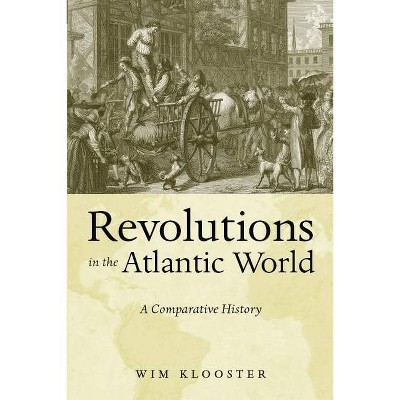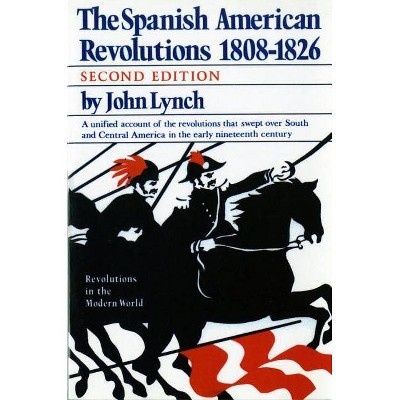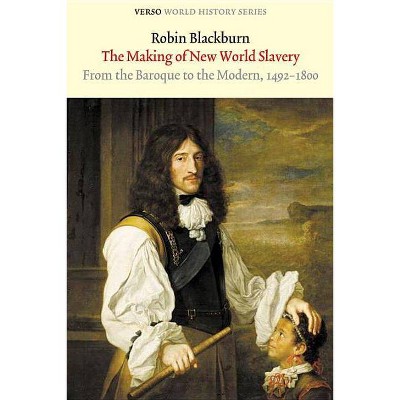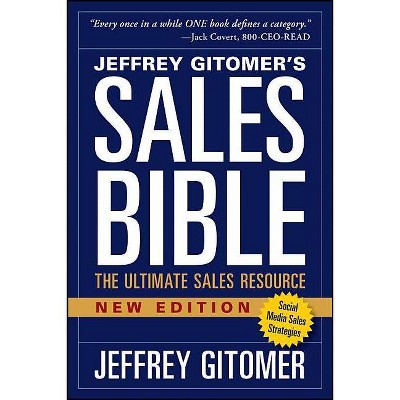Revolutions in the Atlantic World, New Edition - 2nd Edition by Wim Klooster (Paperback)
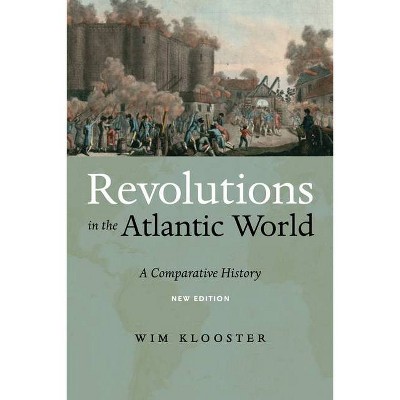
Similar Products
Products of same category from the store
AllProduct info
<p/><br></br><p><b> Book Synopsis </b></p></br></br><p><b>A new look at a contentious period in the history of the Atlantic world </b></p><p>Within just a half century, the American, French, Haitian, and Spanish American revolutions transformed the Atlantic world. This book is the first to analyze these events through a comparative lens, revealing several central themes in the field of Atlantic history. From the murky position of the European empire between the Old and New Worlds to slavery and diaspora, Wim Klooster offers insights into the forces behind the many conflicts in the Atlantic world in the late eighteenth and early nineteenth centuries. </p><p>Digging deeply into the structural causes and oppressive environments in which these revolutions occurred, Klooster debunks the popular myth that the "people" rebelled against a small ruling elite, arguing instead that the revolutions were civil wars in which all classes fought on both sides. The book reveals the extent to which mechanisms of popular mobilization were visible in the revolutions. For example, although Blacks and Indians often played an important role in the success of the revolutions, they were never compensated once new regimes rose to power. Nor was democracy a goal or product of these revolutions, which usually spawned authoritarian polities. </p><p>The new edition covers the latest historiographical trends in the study of the Atlantic world, including new research regarding the role of privateers. Drawing on fresh research - such as primary documents and extant secondary literature - Klooster ultimately concludes that the Enlightenment was the ideological inspiration for the Age of Revolutions, although not its cause.</p><p/><br></br><p><b> Review Quotes </b></p></br></br><br>In this updated edition, Wim Klooster elegantly, and comprehensively, argues for an Age of Atlantic Revolutions. Expertly guiding us through the decades between 1760 and 1830 and over a landscape that includes North America, France, the Caribbean, and Latin America, Klooster convincingly describes this period as one of unanticipated consequences: empires fought, authority was questioned and reformulated, social tensions exploded in unpredicted ways. Kloosters great contribution is to provide a coherence to this turbulence.--James Alexander Dun, author of Dangerous Neighbors: Making the Haitian Revolution in Early America<br><br>Wim Klooster's Revolutions in the Atlantic World not only provides a comparative overview of the revolutions that transformed the Atlantic World in the late eighteenth and early nineteenth century, but also reveals the connections among different revolutionary processes in the Americas and in Europe. Klooster transitions smoothly between regional and imperial contexts, highlighting the significance of transimperial linkages in shaping the social and political processes of different Atlantic empires on both sides of the Atlantic. This second edition provides an especially useful introduction examining how these revolutions reflected the emergence of multiple Enlightenments in different parts of the Atlantic World. This book breaks away from euro-centric narratives and beautifully weaves together vast and the complex intellectual, political, and social revolutions that transformed the Atlantic World.--Fabricio Prado, College of William and Mary<br>
Price History
Price Archive shows prices from various stores, lets you see history and find the cheapest. There is no actual sale on the website. For all support, inquiry and suggestion messages communication@pricearchive.us
